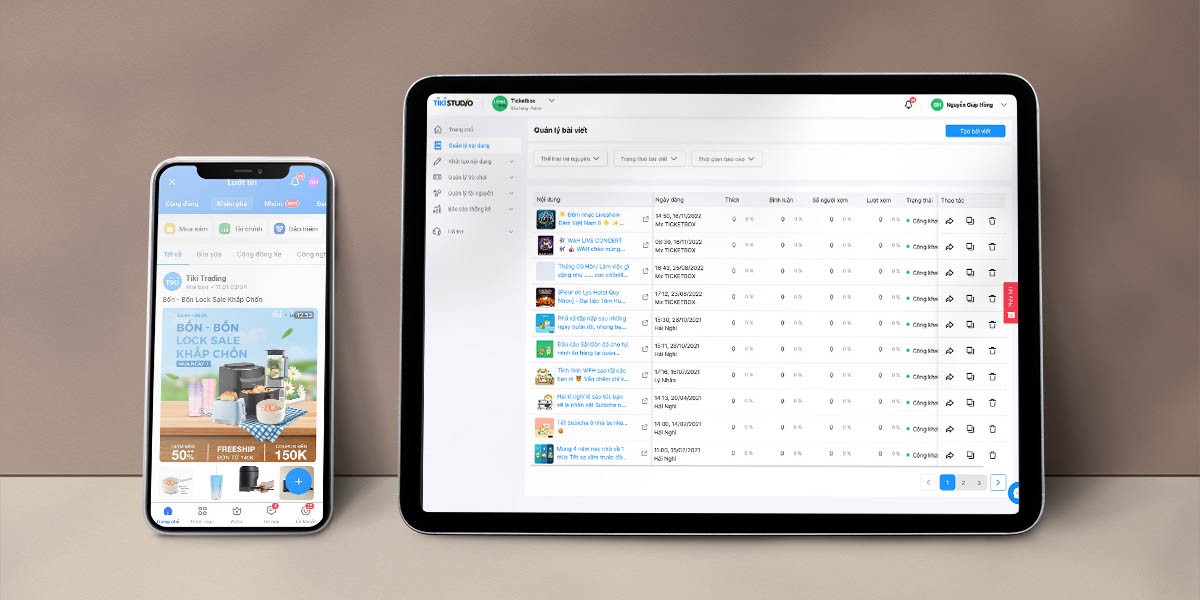Background
Tiki is an e-commerce platform that sells a wide variety of products, including books, electronics, and home goods. In 2020, Tiki began exploring the C2C model to compete with its competitors. My team was assigned to develop the social commerce platform, which would allow users to buy and sell products from each other.
My Role
As a project manager, I was responsible for planning, executing, and delivering the social commerce platform project. I worked with a team of engineers, designers, and product managers to develop the platform, which was launched by the end of 2020.
Product
Due to the limited amount of time, the first phase of the project focused on delivering some basic features:
- Tiki Feed: A personalized feed of posts from sellers and other users. Posts can include photos, videos, and text.
- Tiki Studio: A tool for sellers and marketers to manage their posts and monitor performance. They can use Tiki Studio to create and edit posts, schedule posts to be published, and track the performance of their posts.

Tiki Feed and Tiki Studio
The project was delivered by the end of 2020, after which I was no longer involved. However, development still continued until mid-2022, with many features being released.
By then, the platform had grown significantly:
- Tiki Feed had added support for communities (similar to Facebook Groups) and user profiles.
- Tiki Studio had added support for mini game management and analytics.
- Creator app: A mini app built using the Tini App framework for users and sellers to create posts on Tiki.
- Mini games: A few mini games built using the Tini App framework, using Tiki Studio for customization and management.
- Tiki Live: A live-streaming service for sellers and marketers to run live-streaming campaigns. It was merged to Social Commerce Platform in 2021.
- Dori Dori: A mini app which had first been built for C2C commerce, but then revised to sell returned goods from Tiki. It was merge to Social Commerce Platform in 2021.